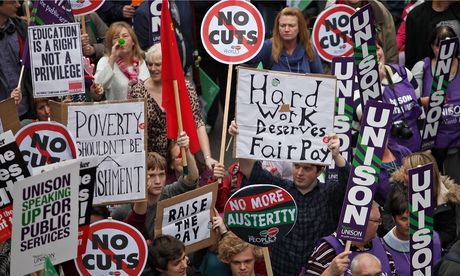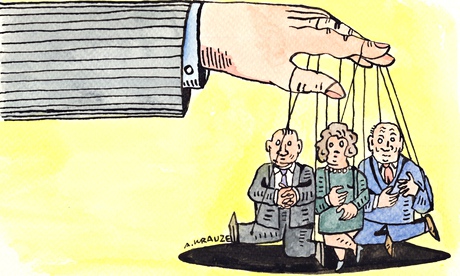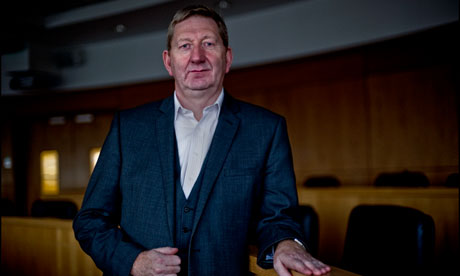No wonder our Thatcherite prime minister can’t win over much of his party on the European Union. They’re closet Bennites

‘Cameron won’t pay new EU bill!” “Cameron might threaten to pull out of the EU!” The exclamations erupt once more, but while the focus is on David Cameron’s latest position, a remarkable transformation has been taking place below him in the Conservative party, which explains his contortions and also makes them irrelevant.
A significant section of the Conservative party has become Bennite: ardent followers of the views espoused by the leftwinger Tony Benn, who died earlier this year. The rightwing Bennites do not look to their leadership for guidance. Like Benn used to do, they follow other lines of democratic accountability. Due to a matter of deeply held principle, the leader can never count on their support, even when he seeks to appease them.
I cannot quite believe I have written the previous paragraph. As a student in the early 1980s I was a Bennite and remember how much the right loathed him. Indeed, I suspect that one of the reasons I was a youthful devotee arose from my admiration of Benn’s polite dignity in the face of ferocious vilification. For a time the Conservative party projected him as the most dangerous man in Britain. Now parts of the right pay homage. The role reversal is the strangest and most significant in British politics for many decades.
Of course, there are big differences between Benn’s overall beliefs and the Tory Bennites. He was a socialist and they most emphatically are not. Benn regarded the state as a benevolent force, and sought wider state ownership, while a lot of the Tory Bennites want government to play a much smaller role. But in the importance they attach to democracy, and in their interpretation of what form democratic politics should take, they have much in common. I also sense that Benn regarded his views on democracy as of overriding importance. So do the Tory Bennites.
The former Tory MP and Ukip defector, Douglas Carswell, was typical in praising Benn in his Guardian interview last week: “Benn said the key questions were: who has power, who gave it to them, on whose behalf do they wield it, and are they accountable? I remember thinking this guy is spot on.” Separately, the founder of the ConservativeHome website, Tim Montgomerie, told me at a public event that he was a “Bennite on Europe”. He would advocate withdrawal whatever Cameron says or does, on the grounds that the EU can never be accountable to voters here or elsewhere. On another front, Benn started a campaign after the 1979 election to make Labour’s leadership and MPs more accountable to party members, supporting the right of local parties to deselect MPs. Benn’s crusade then has become, in a different form, the unrelenting mission of some Tory MPs now, or former Tory MPs. Carswell defected above all over the right of constituents to remove errant MPs – the project led by his former Conservative colleague, Zac Goldsmith. The Tory Bennites’ proposal, the right of recall, is a different measure to Benn’s, but the principle is similar. Constituents should hold MPs to account and not the national leadership.
In the last parliament David Davis pointed the way when he resigned as shadow home secretary to fight a local byelection in his constituency over his support for civil liberties – a move with Bennite rhythms, as local members and voters marched as one to put pressure on the national leadership. Benn was a strong supporter of Davis’s move. When Benn died, Davis presented a glowing tribute on Radio 4. In its counter-intuitive verve, it is the best political programme broadcast this year.
The younger generation is even more emphatic in its focus on the local over loyalty to national leadership. One of the most engaging and smartest of the 2010 intake, Dominic Raab, speaks openly of his commitment to the local party and constituents rather than following an expedient route to ministerial office. Selected by an open primary, Sarah Wollaston has similar priorities, as does Andrew Percy, a regular rebel. Benn would approve.
Listen carefully to the arguments of Tory dissenters on several matters and they care about the mechanics of decision-making as much as the substance of the decisions. This applies to their current explosive opposition to the European arrest warrant and free movement of labour. They fume above all because neither they nor their constituents can decide on the issue, even if they can see merits in the policies being imposed on them.
Benn went on to make a broader argument that the Labour government in the 1970s had failed to carry out the wishes of members. Similarly, a section of Tory MPs do not trust the leadership to deliver what their local members seek. They sought that guarantee of a referendum on Europe so that power was transferred from unreliable leaders to voters. It was Benn who originated the idea of a referendum on Europe when the Labour government held one in 1975.
There is a common characteristic between Benn and the Tory Bennites that goes beyond specifics. He was, and they are, animated by debate rather than tribal loyalties. In Benn’s diaries he was often at his most excited when reporting discussions with Tory ideologues. He describes at length a long, friendly conversation with the rightwing Keith Joseph when they met on a train. He speaks admiringly of Enoch Powell and Margaret Thatcher, on the basis that they were “teachers” of conviction. In his Guardian interview Carswell is highly complimentary of Labour MPs who are also gripped by issues relating to accountability. Davis enjoys good relations with left-of-centre commentators and some Labour tribalists, including Alastair Campbell.
From the younger generation, Raab is similarly excited by internal debate and ideas rather than the stifling control freakery perhaps understandably favoured by leaders. At a fringe meeting during the Conservative conference Raab noted that the current parliamentary party includes libertarians, patrician Tories, Eurosceptics who want out, Eurosceptics who want to stay in, pro-Europeans, those who above all seek ministerial office, and the growing number who have other priorities in politics. In his enthusiasm for such stimulating diversity, he reminded me of Benn, who once described Labour’s mighty internal ideological battles as a healing process.
The practical consequence of Bennism is that a party becomes impossible to lead – at least on the New Labour model adopted at first by Cameron and George Osborne, of a leader and close allies deciding policy and imposing it on a docile party. Today’s Tory party is not docile enough for the model to work. Cameron can appease or challenge the Tory Bennites – it does not matter very much. In some respects he becomes marginal to them. They are driven, as Benn was, by purer lines of accountability in which members and their constituents are agents of change. I have been curious for some time about why Cameron is loathed by some of his MPs when he has delivered a programme that in some respects is more Thatcherite than Margaret Thatcher. Now I know the answer. Some of his MPs on the right are not Thatcherite. They are Bennite.






